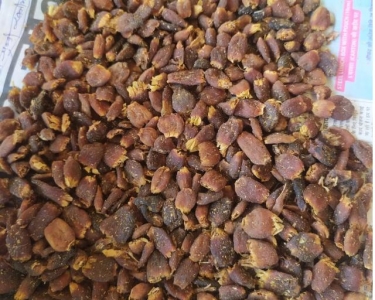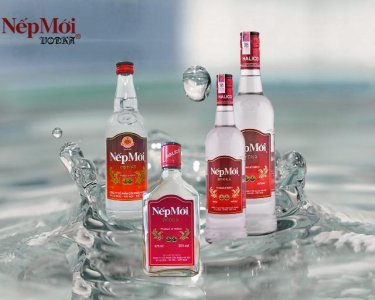Live animals
Couldn't find the product you want?
Fill out this form to request the product.
Products You May Like
Export from Cook Islands
The Cook Islands has a small size economy, which is the result of the country's isolation from foreign markets, poor natural resources and frequent natural disasters. The major industries of the island are tourism, food processing and fishing. Manufacturing activities are limited to the processing of fruit, clothing and handicrafts.
Tourism represents the most important economic sector, accounting for about 67.5% of the Cook Islands GDP. Agriculture is also an important part of the country's economy, as it employs about 1\3 of the people. The main cultivated crops include tomatoes, yams, beans, bananas, pineapples, citrus fruits, pawpaws and coffee. The government is working to expand its agriculture, mining and fishing sectors, as well as encourage offshore banking and tourism.
The Cook Islands is the world's 197th largest exporter. It should be noticed that cultured pearls are among the largest exported commodities, accounting for most of the Cook Islands exports. Other exports include boats, clothes, fresh fruits, canned fruits, vegetables, fish, seafood and coffee. The top export partners of the Cook Islands are Australia, Thailand, New Zealand, Japan, China, Turkey and South Africa.
Import to Cook Islands
The economy of the Cook Islands is strongly affected by its geographic position. The island is isolated from foreign markets, it has poor natural resources and limited manufacturing. As a result there is a strong need to import all the missing commodities.
Agriculture and services are the main source of the islands revenue, since industry is not quite developed (only 9.6 % of the GDP). Future economic perspectives are expected to come from the mining of undersea deposits of cobalt, copper, and nickel inside the exclusive economic zone.
The Cook Islands is the world's 202nd largest importer. The main imports include food products, capital goods, textiles, fuels, timber, passenger and cargo ships, construction vehicles and iron structures. The country's main import partners are New Zealand, China, Fiji, Australia and Turkey.
Check Out Export Portal: A Site That Lets You Export Live Animals
If you are looking to buy and export animals, then you came to the right place! Export Portal's Live Animals Department is an online marketplace for sellers and buyers of any livestock. We work to contribute to the live export industry, which brings many economic advantages and other benefits to countries that rely heavily on livestock imports. In fact, in just Australia alone, this industry contributes roughly $1.8 billion to the country's GDP each year. Moreover, it also ensures food security while helping people meet their protein needs as well.
Finding the Right Animal
We feature a wide range of pigs, cows, sheep, goats, horses, rabbits and hares, turkeys, bees, and fish for sale. An increasing number of American, Australian, German, South African, Argentinian, and Italian farmers and companies are advertising their livestock with Export Portal, portraying just how effective and helpful our site is.
To help customers make more informed purchasing decisions, our site lets users narrow down their searches by the age, breed, and sex of the animal. If you are feeling hesitant to shop on our site and want more detailed information, make sure to check out our seller ratings and reviews, which are written by our buyers and customers. We also collaborate with hundreds of trusted international shipping companies that arrange the transport of all kinds of animals and birds to any country in the world.
Online Shopping is More Simple with Export Portal
Export Portal is an ideal site for everyone who is an avid online shopper. Our convenient options make it easy to find and buy whatever you are looking for. Our seller network from all over the world has everything you need, and our customer support team will make sure you can find it. Our wide assortment of products will be sure to provide you with the best shopping experience. Make sure to check out our site and items today!
Customs requirements of Cook Islands
Cook Islands Customs Contacts
Website: http://www.customs.govt.nz/Pages/default.aspx
Email: customs.support@cookislands.gov.ck
Address: Cook Islands Customs Service/ Revenue Management Division, P O Box 120, Rarotonga
Telephone: +682 29365
The Cook Islands is an island country in the South Pacific Ocean in free association with New Zealand. The Cook Islands' defense and foreign affairs are the responsibility of New Zealand, but they are exercised in consultation with the Cook Islands. The Cook Islands is a member of the WHO and an associate member of the Economic and Social Commission for Asia and the Pacific.
Tariffs
With few exceptions, imports are subject to the 15 per cent Goods and Services Tax (GST) and is payable at the time of entry. Duty assessment is based on free on board (FOB) value, country of origin and classification of goods.
Product certification, labelling and packaging
Import licenses are not required to import goods into New Zealand and import restrictions or barriers are not imposes to imports for purely trade-related reasons. Although, there are strict health, content, safety and origin labelling rules and stringent restrictions relating to animal and plant health requirements. Convention on International Trade in Endangered Species (CITES) certification is required for endangered plant and animal species and products. Animal remedies and pesticides must be licensed by the New Zealand Animal Remedies Board or the Agricultural Chemicals Board. Animal and Plant products including nursery stock, live animals and food are subject to import health standards issued by Ministry for Primary Industries. A wide range of products are prohibited under biosecurity regulations, while special import requirements apply to weapons and dangerous substances such as chlorofluorocarbons.
Most labels carry the following information: date marking, name or description of the food, name and address of the business, warning and advisory statement, ingredients list, percentage labelling, nutrition information panel, use and storage directions.
Import and export documents
Documents needed for import:
- an airwaybill or bill of lading
- commercial invoices
- packing lists
- insurance certificates.
Clearance via the internet is possible by filling the Online Customs Entry Declaration on the official customs website https://customs.gov.ck/web-bms/pages/login.xhtml
More detailed information about tariffs applied on goods can be found here:
http://www.customs.govt.nz/incommercial/importcharges/dutiesandcharges/Pages/default.aspx
Sources:
http://www.mfem.gov.ck/index.php?option=com_content&view=category&layout=blog&id=35&Itemid=58
http://www.customs.govt.nz/features/charges/Pages/default.aspx
http://www.customs.govt.nz/features/prohibited/exports/Pages/default.aspx





